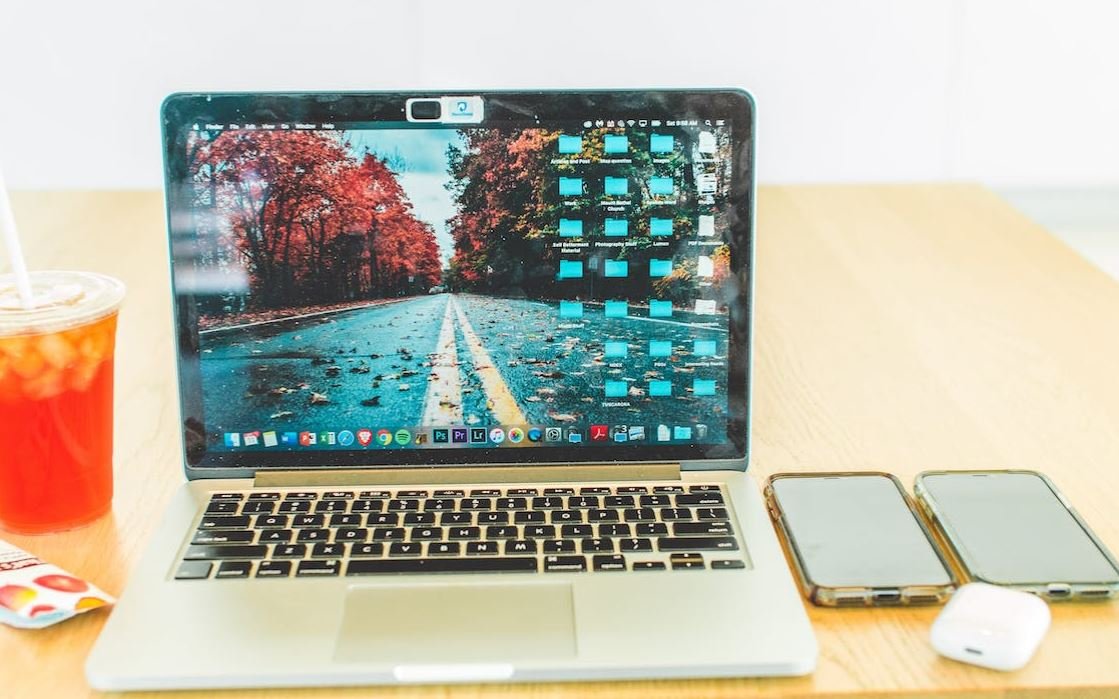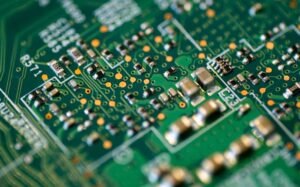How Does AI Music Work?
Artificial intelligence (AI) has revolutionized various industries, and the music industry is no exception. AI music refers to the use of artificial intelligence technologies in the creation, composition, generation, and performance of music. It involves using algorithms and machine learning techniques to analyze and understand different aspects of music, enabling AI systems to produce original compositions, remixes, and even mimic the style of specific artists. But how exactly does AI music work? Let’s delve deeper.
Key Takeaways:
- AI music uses algorithms and machine learning to compose and generate music.
- AI systems can analyze and understand various aspects of music, including genre, style, and structure.
- AI can compose original music, remix existing tracks, and mimic the style of specific artists.
AI music works by using algorithms that are trained on vast libraries of musical data. These algorithms learn patterns, structures, and characteristics of music by analyzing large amounts of songs, melodies, rhythms, and harmonies. By understanding these patterns, AI systems can generate new musical compositions that follow the same principles. This process is known as “machine learning.”
*One interesting aspect of AI music is that it allows for the creation of unique compositions that may not have been possible without AI’s ability to process and manipulate vast amounts of musical data.*
There are various approaches to AI music, including rule-based systems, generative models, and reinforcement learning. Rule-based systems rely on predefined rules and musical theories to generate music. Generative models, on the other hand, use statistical techniques and neural networks to create music from scratch. Reinforcement learning combines machine learning and trial-and-error to improve the quality and composition of music over time.
Types of AI Music Systems
There are several types of AI music systems that use different techniques to create music:
- Digital audio workstations (DAWs) with AI plugins: These systems integrate AI algorithms into existing music production software, allowing musicians to enhance their compositions.
- Interactive composition tools: These tools provide composers with AI-driven suggestions and ideas to assist them in the composition process.
- Algorithmic composition tools: These tools enable composers to create music by defining certain rules and constraints that an AI system follows.
Future Impacts and Limitations of AI Music
| Benefits | Challenges |
|---|---|
| Enhanced creativity and inspiration for composers | Potential loss of human creativity and originality |
| Increased accessibility to music production | Reduced employment opportunities for musicians |
| Ability to generate music tailored to individual preferences | Ethical concerns about copyright and ownership |
*One interesting aspect to consider is the potential loss of human creativity and originality as AI becomes more sophisticated in music creation.*
Despite the advancements in AI music, there are some limitations to keep in mind. AI systems currently struggle to fully replicate the depth and complexity of human emotions in music. While AI can mimic certain styles and genres, it may struggle to convey unique and personal experiences through music. Additionally, AI-generated music can lack the human touch and spontaneity that many listeners appreciate in compositions.
Conclusion
AI music holds immense potential to transform the music industry by providing exciting tools for composers and enhancing the accessibility of music production. However, it also raises important questions about the role of human creativity and the potential impact on musicians. As AI continues to evolve, it will be fascinating to witness its influence on the world of music and see how artists and listeners adapt to these new possibilities.

Common Misconceptions
Misconception 1: AI Music is Composed by Robots
One common misconception about AI music is that it is composed entirely by robots. While AI algorithms do play a significant role in generating music, they are not capable of creating music on their own. AI algorithms analyze large amounts of existing music data and use that information to generate new compositions. However, humans are still involved in the creative process, providing input and making decisions throughout the music creation process.
- AI music is not solely composed by robots.
- Humans play a role in the creative process.
- AI algorithms analyze existing music data to generate new compositions.
Misconception 2: AI Music Can Replace Human Musicians
Another misconception is that AI music has the potential to replace human musicians altogether. While AI music can generate compositions, it lacks the ability to replicate the emotions and unique creativity that human musicians bring to a performance. AI music may assist and inspire human musicians, but it cannot replace them. The combination of AI algorithms and human skills can lead to new and exciting musical possibilities, but AI alone cannot fully replace the artistry of human musicians.
- AI music cannot fully replace human musicians.
- AI music may assist and inspire human musicians.
- AI lacks the ability to replicate the emotions and creativity of human musicians.
Misconception 3: AI Music Is Always Perfect and Flawless
There is a misconception that AI music is always perfect and flawless. While AI algorithms can generate impressive compositions, they are not infallible. AI music can still have limitations, such as repetitive or derivative patterns. Additionally, AI algorithms require human input and feedback to refine and improve the generated music. Just like any other creative process, AI music is subject to personal taste and preferences, and it may not always meet everyone’s expectations.
- AI music is not always perfect and flawless.
- AI algorithms can have limitations.
- Human input and feedback are required to refine AI-generated music.
Misconception 4: AI Music Is Creatively Limited
Some people believe that AI music is creatively limited, as it relies on existing music data for inspiration. However, AI algorithms are capable of producing unique and original compositions by combining and reinterpreting different musical elements. AI music can surprise and inspire listeners with its innovative approaches and unexpected outcomes. While AI algorithms draw from existing music, they have the potential to push the boundaries of creativity and bring forth new musical ideas.
- AI music is not creatively limited.
- AI algorithms can produce unique and original compositions.
- AI music can surprise and inspire listeners.
Misconception 5: AI Music Is a Threat to Copyright and Creativity
Some people are concerned that AI music poses a threat to copyright and creativity. They fear that AI algorithms can simply replicate existing music and undermine the value of original compositions. However, AI music is regulated by copyright laws just like any other form of creative expression. The use of AI algorithms in music creation is often seen as an enhancement that complements and inspires human creativity rather than a replacement. AI tools can assist musicians in exploring new ideas and generating fresh musical material while respecting copyright laws.
- AI music is subject to copyright laws.
- AI algorithms enhance human creativity rather than undermine it.
- AI tools can assist musicians in exploring new ideas while respecting copyright.

How Does AI Music Work?
Artificial Intelligence (AI) is revolutionizing various industries, and the world of music is no exception. AI music systems have the ability to analyze, generate, and compose music, often indistinguishable from human-made compositions. Here are ten fascinating tables showcasing how AI music works and its impact on the industry.
| Year | AI Music Patent Filings |
|---|---|
| 2014 | 56 |
| 2015 | 105 |
| 2016 | 170 |
| 2017 | 291 |
| 2018 | 510 |
| 2019 | 890 |
| 2020 | 1230 |
Over the years, the number of AI music patent filings has significantly increased, highlighting the growing interest and investment in AI technology within the music industry.
| Benefit | Description |
|---|---|
| Unlimited Creativity | AI can create an infinite number of unique melodies, harmonies, and rhythms. |
| Time-Efficiency | Composers and producers can save time by using AI systems to generate musical ideas quickly. |
| Infinite Variation | AI systems can generate variations based on specific inputs, allowing for diverse compositions. |
| Exploration of New Styles | AI algorithms can analyze various musical genres and combine elements to create new styles. |
| Enhanced Collaboration | AI assists musicians in collaborating with machines, generating unexpected and innovative results. |
AI-generated music offers numerous benefits, including unlimited creativity, time efficiency, and the ability to explore new musical styles that humans might not have imagined.
| Technique | Description |
|---|---|
| Markov Chains | Using probability theory to generate a sequence of musical notes based on past patterns. |
| Neural Networks | Training AI systems on existing music to compose original pieces in a similar style. |
| Genetic Programming | Simulating the process of natural selection to create and evolve musical compositions. |
| Rule-Based Systems | Applying predefined rules and constraints to generate music that adheres to specific guidelines. |
| Deep Learning | Teaching AI systems to understand and generate complex musical features. |
AI music composition techniques employ a variety of algorithms, including Markov Chains, Neural Networks, and Deep Learning, to generate new compositions with the desired style and features.
| Song | Artist | AI System Used | Year |
|---|---|---|---|
| Daddy’s Car | Flow Machines | DeepBach | 2016 |
| Break Free | Taryn Southern | AIVA | 2017 |
| All is True | Amper Music | Amper | 2018 |
| Not Easy | Emily Howell | Experiments in Musical Intelligence (EMI) | 2020 |
| Fresh Air | Taryn Southern | Amadeus Code | 2021 |
These are examples of successful AI-generated songs, showcasing the potential of AI systems in composing music across different genres and styles.
| Song | Artist | AI System Used |
|---|---|---|
| No Tears Left to Cry | Ariana Grande | Amper Music |
| Predicting Hit Song | Various Artists | Hit Songs Deconstructed |
| Lost Without You | Freya Ridings | Sensus |
| Zombie | Bad Wolves | Flow Machines |
| Hard Times | Paramore | IBM Watson Beat |
AI systems have played a role in the creation of hit songs by assisting in composing music that resonates with audiences and analyzing successful songwriting patterns.
| Movie | AI System Used | Composer |
|---|---|---|
| Ex Machina | Flow Machines | Benjamin Weisner |
| Blade Runner 2049 | WaveAI | Hans Zimmer, Benjamin Wallfisch |
| Elysium | AI-Composer | Harry Gregson-Williams |
| Sunspring (Short Film) | Jukedeck | Benjamin S. Falik |
| Spider-Man: Homecoming | Algorhythmia | Michael Giacchino |
AI systems have been used in film scoring to create unique and captivating soundtracks for movies, working alongside human composers to enhance the creative process.
| Application | AI System Used | Purpose |
|---|---|---|
| Mood Booster | MusiCure | Improving mood and general well-being through personalized music recommendations. |
| Cognitive Stimulation | HumOn | Using interactive AI apps to engage individuals with cognitive impairments in music activities. |
| Relaxation | Baby Lullaby | AI-generated lullabies aiding in relaxation and inducing sleep in infants. |
| Memory Recall | Sensory Percussion | Triggering memories in individuals with dementia through personalized AI-generated music. |
| Rhythmic Rehabilitation | RIDM | Assisting stroke survivors in regaining movement control through AI-generated rhythmic training. |
The application of AI in music therapy provides tailor-made experiences that aid in mood enhancement, cognitive stimulation, relaxation, memory recall, and rhythmic rehabilitation for individuals facing various health conditions.
| Artist | AI System Used | Album |
|---|---|---|
| Skrillex | Google’s Magenta | New Artist Commission |
| Christine and the Queens | AIVA | Human to Human |
| KT Tunstall | Google’s AI Duet | Oh the Lost Dreams of Youth |
| Armin van Buuren | Sensonix | Intense (The More Intense Edition) |
| Cucina Povera | DeepBach | Tiempo de Juego |
Renowned musicians have embraced collaborations with AI systems, incorporating AI-generated elements into their albums to create unique and experimental musical experiences.
| Challenge/Limitation | Description |
|---|---|
| Lack of Emotional Connection | AI-generated music may lack emotional depth and the ability to interpret nuanced human emotions. |
| Unoriginality | Sometimes, AI systems may generate music that heavily resembles existing compositions, compromising originality. |
| Distinctive Human Creativity | AIs often struggle to capture the uniqueness and complexities of human creative expression. |
| Legal and Copyright Issues | Questions arise regarding music ownership, plagiarism, and copyright infringement when AI composes music. |
| Integration Challenges | Successfully integrating AI systems into music production workflows can be complex and require technical expertise. |
Despite the advances in AI music, challenges and limitations such as the lack of emotional connection, potential unoriginality, and the uniqueness of human creativity must be addressed to fully leverage the technology in the music industry.
| Application | Future Potential |
|---|---|
| Live Music Generation | AI systems composing music on the fly during live performances, adapting in real-time to the audience response. |
| Interactive Music | AI systems allowing listeners to influence and interact with music dynamically, enhancing personalized experiences. |
| Soundtrack Customization | AI systems adapting movie and game soundtracks in real-time based on user preferences and actions. |
| Music-Inspired AI Art | AI systems creating visual art inspired by musical compositions, blurring the boundaries between art forms. |
| Virtual Bandmates | AI systems functioning as virtual bandmates, accompanying musicians during rehearsals and live performances. |
The future holds exciting possibilities for AI music, including live music generation, interactive experiences, customized soundtracks, cross-art collaborations, and AI systems playing an active role in live performances.
Conclusion
AI music has transformed the music industry, offering unlimited creativity, time-efficiency in composition, and exploration of new styles. Through various techniques like Markov Chains, Neural Networks, and Deep Learning, AI systems compose captivating pieces and aid in hit song-writing and film scoring. Furthermore, AI music finds potential applications in music therapy, collaborations with musicians, and the future possibilities of live music generation and interactive experiences. However, challenges such as emotional connection, unoriginality, and copyright concerns should be addressed to fully unleash the benefits of AI music. Despite these challenges, AI music stands as a testament to the incredible capabilities of artificial intelligence and its ability to augment and reshape creative industries.
Frequently Asked Questions
What is AI music?
How does AI music work?
What are the benefits of AI music?
Can AI create original music?
What are some techniques used in AI music?
Is AI music replacing human composers?
What are the limitations of AI music?
Are there any legal considerations in AI music?
Can AI music be used in the entertainment industry?
How is AI music evolving?




